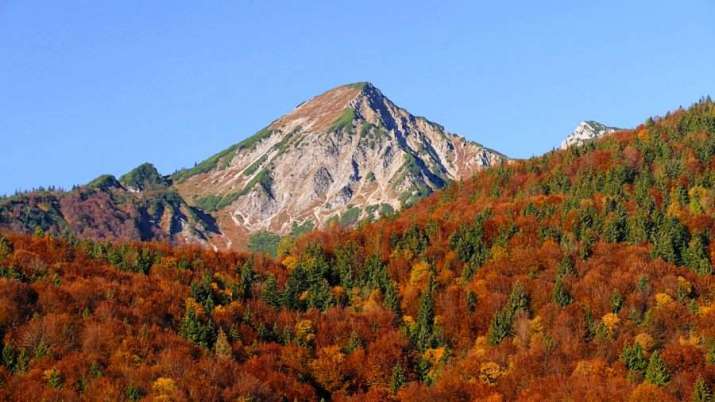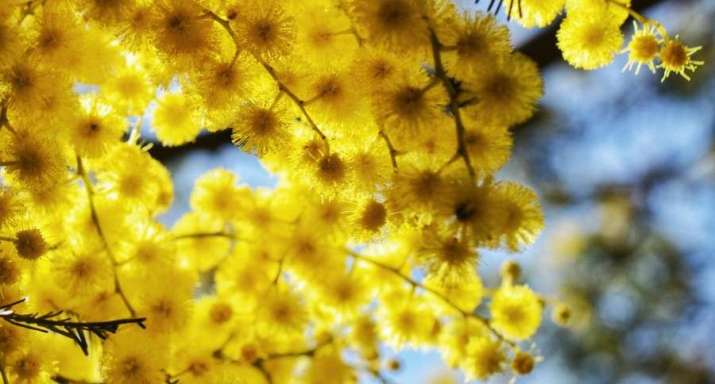FEATURES|COLUMNS|Dear Earth
Finding Radiance in Difficult Times

As your mind becomes pure and clear, its uttermost purification causes you to see suddenly the great Earth, mountains, and rivers in the ten directions change into the Buddha's Pure Land, adorned with all kinds of precious gems, whose radiance is all-pervading. (Surangama Sutra, VIII, 8)
The past year has been tough. For many people, the pandemic has been in the foreground, bringing everything from the discomfort of restrictions to the trauma of grave illness and death. There has been a global rise in exploitative capitalism and, at the extreme ends, dangerous fascism. Looming behind all of this, like a tsunami, is the climate and ecological emergency. It’s hard to imagine the catastrophic consequences of us heading back to “business as usual” as vaccines are rolled out.
Alongside all this, we are faced with the usual duhkha that being-alive brings. I used to underestimate the effect of these small-to-medium-sized niggles—a worry that we said the wrong thing to our friend last night, having to clear up a smashed mug, the supermarket running out of the ice-cream we were really looking forward to. I now see these micro-challenges as a big part of what wears us down; it’s not always the major crises that finishes us off, but the seventh time we have to ask our dog to stop scratching our favorite armchair.
Pure Land Buddhism helps me with this experience of being a struggling human. It tells me that we are all bombu beings, often helplessly bobbing along on the currents of our greed, hate, and delusion—all our best attempts at keeping our systems steady. It tells me that there is support available, and that we receive it not when we work really hard or become perfect, but when we surrender and call out for help. It also reminds me that the Buddha’s Pure Land is available to us right here in this world and not just as a comforting destination when we die.
What does it mean, that when our mind is pure and clear “. . .suddenly the great Earth, mountains, and rivers in the ten directions change into the Buddha’s Pure Land?” This morning I walked slowly around the temple garden, making some space for myself before my busy day. I noticed spears of daffodils peppering the lawn, the first hint of the Sun to come, and watched a fat thrush poking around for worms. The blue patches of sky above me opened up, expanding, and became luminous.

When we look through the right eyes, the beauty of the Earth steps toward us. Whether in a cityscape or a field, whether in driving rain or sparkling cold, we become open to the radiance of the gems around us, and we are nourished by their light. Despite the weight of our everyday concerns, we find a little wiggle-room, a place where we can take a breath before carrying on.
If the Pure Land is always available to us, then the million-dollar question is how we might obtain a pure and clear mind in order to see it. I think that there are a few different ways of answering this question.
The first is the traditional Buddhist way—through practice. If we can sit quietly and let our busy thoughts settle, we are more likely to find this clarity. It will also help if we put effort into doing the “right things”—looking after our physical health, asking for emotional support when we need it, trying to follow the precepts, and helping others. This self-power approach is championed in the West, and there are lots of cultural beliefs that support it—“poor people should just work harder,” the American Dream, and so on.
The second is a more traditionally Pure Land approach. It’s great to put effort into doing the right things, but we accept that we are not always capable of following through. Yes, my body would appreciate it if I did 15 minutes of yoga most mornings, but I haven’t been capable of that for months. Yes, I might have a clearer mind if I did more Buddhist practice, but today I am deciding to watch an hour of trashy television instead. We accept that we are bombu, we acknowledge our helplessness and we turn to Amitabha Buddha for help.
This is not always a popular suggestion. I clung to my illusion of self-mastery and control for decades, preferring to believe I “just wasn’t trying hard enough” than the alternative of really seeing my limits and the limits of the world. Also, it can be a great relief to finally acknowledge our frailties, as those who have completed step one of the 12-step program will know. When we can admit to our powerlessness over our addictions or our fears, we begin to open ourselves up to the great wisdom and deep compassion of all the Buddhas. Pure Lands suddenly appear.
What’s wonderful about this other-power wisdom is that we hand the purification of our minds over to the buddhas too. We stop seeing ourselves as the director of the whole show, and instead find our small part and play it to the best of our ability. We put down the enormous and impossible responsibility of self-perfection and receive the gift of helping hands. We begin to believe that we might be able to muddle along in this flawed and astonishing world, appreciating the jewels as we go.
During difficult times, we have an extra opportunity to see how small and weak we really are. Paradoxically, when we stop trying to control the universe and allow the universe to show us what we need to do, we are all capable of performing miracles. Mostly tiny miracles, as we move a snail to the side of the path where it won’t get squished, or we offer a listening ear to our lonely elderly neighbor. A million miracles nonetheless, a million precious gems that adorn the world.
References
“Surangama Sutra,” from Stewart, Harold. 1981. By the Old Walls of Kyoto:A Year's Cycle of Landscape Poems with Prose Commentaries. Trumble, CT: Weatherhill.
Related features from Buddhistdoor Global
The Land of Bliss: Amitabha’s to Build, Ours to Enjoy
Book Review: Chinese Pure Land Buddhism: Understanding a Tradition of Practice
The Breath as an Anchor for the Here and Now
To Become a Buddha by Rebirth in the Pure Land
How Many Kinds of Living Beings Are There in the Land of Bliss?
Rejoicing in Faith Comes from Amitabha's Name














